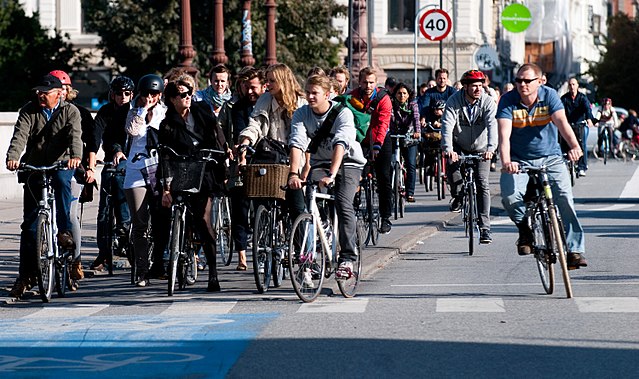Alliance for Healthy Cities
The Alliance for Healthy Cities (AFHC) is a cooperative international alliance aimed at protecting and enhancing the health and health care of city dwellers. It is composed of groups of cities, urban districts and other organizations from countries around the world in exchanging information to achieve the goal through a health promotion approach called Healthy Cities. The chair city for the alliance is Ichikawa, Japan.
AFHC third conference nobori in Ichikawa, Chiba in October 2008
Healthy city is a term used in public health and urban design to stress the impact of policy on human health. It is a municipality that continually improves on a physical and a social level until environmental and pathological conditions are reached establishing an acceptable morbidity rate for the population. Its modern form derives from a World Health Organization (WHO) initiative on Healthy Cities and Villages in 1986, but has a history dating back to the mid 19th century. The term was developed in conjunction with the European Union, but rapidly became international as a way of establishing healthy public policy at the local level through health promotion. It emphasises the multi-dimensionality of health as laid out in WHO's constitution and, more recently, the Ottawa Charter for Health Promotion. An alternative term is Healthy Communities, or Municipios saludables in parts of Latin America.

Rush hour in Copenhagen, where 62% of the population commute by bicycle to their work or study places each day


